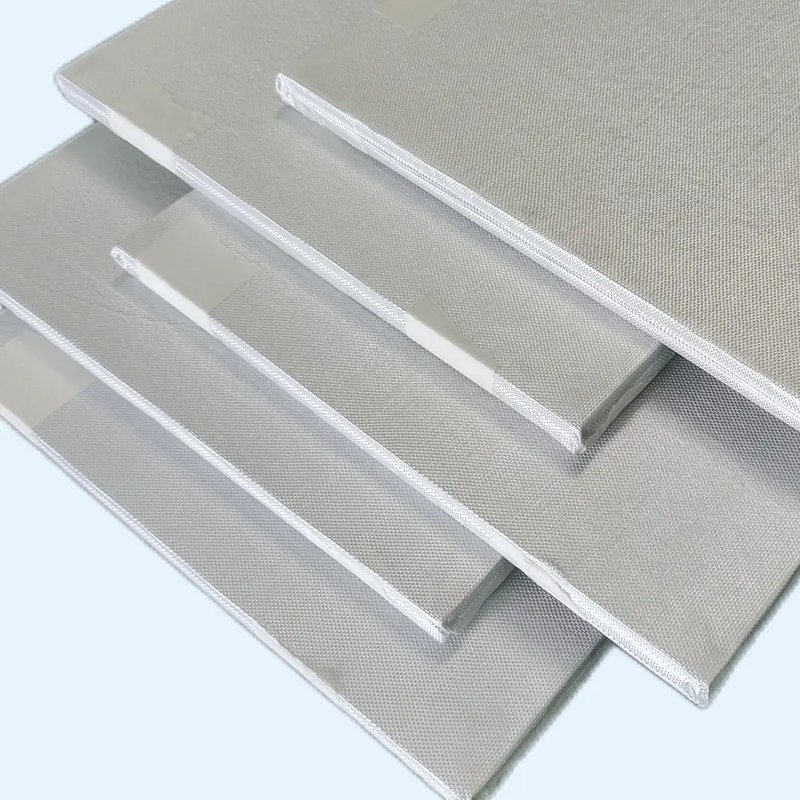Innovations in Energy Conservation with Aerogel Coat Technology
Advancements in material science have revolutionized the thermal insulation coating market, with aerogel coatings emerging as a game-changing solution for energy efficiency.
Advancements in material science have revolutionized the thermal insulation coating market, with aerogel coatings emerging as a game-changing solution for energy efficiency. These ultra-lightweight, nano-porous materials offer unparalleled insulation properties that are transforming both architectural and industrial applications. As aerogel manufacturers continue to innovate, products like InsulateWool's High-Efficiency Aerogel Coat are setting new standards in thermal management.
Table of contents:
Breaking Down the Thermal Properties of Advanced Aerogel Materials
How Aerogel Thermal Insulation Contributes to Sustainable Building Design
The Role of Aerogel Coats in Achieving Net Zero Energy Standards
Cutting Edge Applications of Aerogel Insulation in Renewable Energy Systems
Breaking Down the Thermal Properties of Advanced Aerogel Materials
The exceptional performance of aerogel coatings stems from their unique structure. Aerogel manufacturers have developed materials with nanoscale pores ranging from 20 to 100 nanometers, creating a 3D skeleton that traps air and dramatically reduces heat transfer. This architecture results in thermal conductivity values that outperform traditional insulation materials by a wide margin. For instance, a mere 2mm layer of InsulateWool's Aerogel Coat provides insulation equivalent to 40mm of conventional materials. This remarkable efficiency is driving growth in the thermal insulation coating market, as builders and industrial operators recognize the potential for substantial energy savings and improved thermal management in a variety of settings.
How Aerogel Thermal Insulation Contributes to Sustainable Building Design
The integration of aerogel coatings into building design is reshaping approaches to energy conservation. Aerogel manufacturers are producing materials that not only excel in thermal insulation but also offer fire resistance, durability, and ease of application. These properties make aerogel coats ideal for both new construction and retrofitting projects. In residential applications, such coatings have demonstrated the ability to reduce indoor humidity by 40% and decrease air conditioning usage by 35%. The thermal insulation coating market is responding to this demand with specialized products for interior and exterior walls, roofs, and windows, providing architects and builders with versatile solutions to meet stringent energy efficiency standards while maintaining aesthetic flexibility.
The Role of Aerogel Coats in Achieving Net Zero Energy Standards
As global initiatives push for net zero energy buildings, aerogel coatings are playing a crucial role in meeting these ambitious targets. The thermal insulation coating market is expanding to accommodate the growing demand for high-performance materials that can significantly reduce a building's energy footprint. Aerogel manufacturers are at the forefront of this movement, developing products that can decrease air conditioning energy consumption by 30-50%. This level of efficiency is critical in achieving net zero standards, as it dramatically reduces the energy required for heating and cooling, which typically accounts for a large portion of a building's energy use. By enabling such substantial energy savings, aerogel coatings are becoming an essential component in the toolkit of sustainable design professionals.
Cutting Edge Applications of Aerogel Insulation in Renewable Energy Systems
Beyond buildings, aerogel coatings are finding innovative applications in renewable energy systems and industrial processes. The thermal insulation coating market is seeing increased adoption in sectors such as petrochemicals, where aerogel coats have reduced storage tank temperatures by 5-8℃ and slashed summer energy consumption by 60%. Aerogel manufacturers are also developing specialized coatings for new energy battery insulation, contributing to the efficiency and safety of electric vehicle technologies. With temperature resistance ranging from -40℃ to 800℃, these advanced materials are enabling more efficient energy storage and transport solutions, further supporting the transition to renewable energy sources and enhancing overall system performance.
The impact of aerogel coat technology on energy conservation cannot be overstated. As the thermal insulation coating market continues to evolve, driven by innovative aerogel manufacturers, we are witnessing a paradigm shift in how we approach energy efficiency in both construction and industry. The ability of these advanced materials to provide superior insulation with minimal thickness is not just a technological achievement; it represents a significant step towards more sustainable and energy-efficient practices across various sectors. As research progresses and applications expand, aerogel coatings are poised to play an increasingly vital role in our global efforts to reduce energy consumption and combat climate change.
LATEST NEWS
Precision-Cut Aerogel: The One-Day Solution for UK Retrofit Experts
2026-01-25
Zero-Risk Fire Safety: Bulk High-Density Rock Wool for Mega Power Infrastructure – A1 Rated & Container-Ready
2026-01-21
The "Performance Decay" Trap: Why Your Building’s R-Value is Lower Than You Think
2026-01-20
Beyond Support: Why 8.11 MPa HDPU is the New ISO Standard for Cryogenic Pipe Supports & Heavy Loads
2026-01-20
Stop Thermal Bridges at the Source: High-Strength PU Structural Thermal Breaks (600 kg/m³)
2026-01-19

